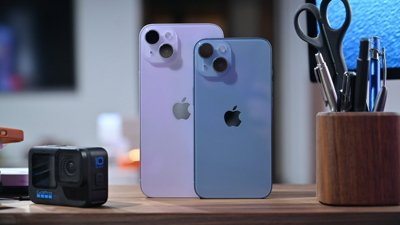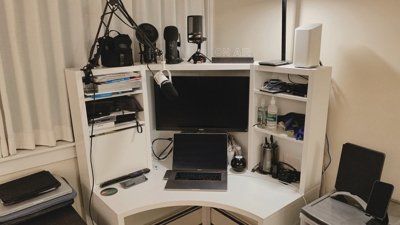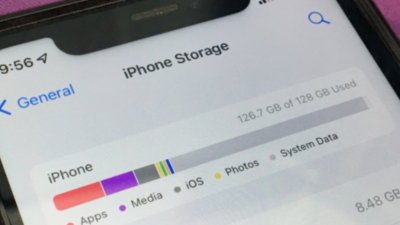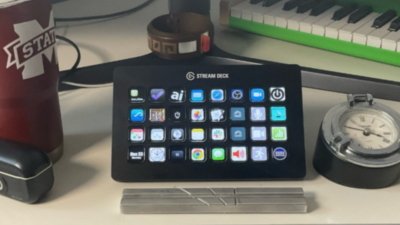The filing contains AT&T's response to a petition by rival carrier Sprint opposing the $39 billion deal. Sprint alleged in its filing that the acquisition would hurt smaller carriers trying to negotiate for backhaul and roaming agreements. The petition also cited an industry expert accusing AT&T of inadequate investment in its network to prepare for 4G LTE.
In addition to responding to Sprint's petition, the AT&T filing also answers a list of questions that the FCC sent last month.
AT&T focused on five key points throughout the statement. First, the wireless carrier asserts that "the transaction will generate jobs and economic growth." If the merger goes through, AT&T plans to invest more than $8 billion to expand LTE deployment and to integrate the AT&T and T-Mobile USA networks. In particular, the company sees the LTE expansion as having "job-creating ripple effects" throughout the economy.
The filing also claims that the transaction will "preserve and promote competition and innovation. "Nothing about the combination of AT&T and T-Mobile USA could possibly keep Sprint or any other provider from acting on the same incentives it has today to keep innovating in this unusually dynamic ecosystem," AT&T said, citing "incredible support for [the merger] from a large and broadly diverse number of high-tech companies."
"As anyone who watches television or reads the newspaper knows, the wireless market is one of the most competitive in the entire U.S. economy, with wireless providers aggressively marketing a vast array of products and services," the company wrote. AT&T alleges that the resurgence of Sprint and the fact that roughly 75 percent of Americans have a choice of five or more facilities-based wireless providers demonstrate "the basic competitive realities" in the American market.
According to AT&T, the post-acquisition company will have a far greater network capacity than its pre-merger parts. The company takes issue with accusations of underinvestment, arguing that its $75 billion investment to upgrade its wireline and wireless networks is "more than any other public company has invested in the U.S."
AT&T also turned the tables on Sprint, noting that Clearwire, which Sprint owns a majority stake in, has a "far stronger" combined spectrum position than AT&T and T-Mobile. With an average of 160-megahertz of spectrum in the top markets, Clearwire has the "best spectrum position in the industry," the filing claims. "This is more than the combined AT&T/T-Mobile company would have if their merger is approved, and does not even include the additional spectrum Sprint holds directly."
During a Senate hearing investigating the proposed acquisition last month, AT&T promised that it would reach 97 percent of the nation's population with 4G LTE if the deal was approved. Meanwhile, Sprint CEO Dan Hesse called for Congress to "just say no to this takeover."
 Josh Ong
Josh Ong
-m.jpg)






 Malcolm Owen
Malcolm Owen
 Christine McKee
Christine McKee
 Charles Martin
Charles Martin


 William Gallagher
William Gallagher
 Amber Neely
Amber Neely










38 Comments
the biggest point of opposition to the merger is the loss of a company in the game. But T-Mobile is tossing in the towel in the US. So no matter what we are going down to 3 major carriers.
the biggest point of opposition to the merger is the loss of a company in the game. But T-Mobile is tossing in the towel in the US. So no matter what we are going down to 3 major carriers.
T-Mobile is not tossing in the towel in the U.S. What a ridiculous statement.
They are probably thinking that their isn't any real competition in the wireless industry now, so, what difference will it make.
That is BS. Right now I can take my iPhone and go to either AT&T or T-Mobile. They are both GSM networks. Both have different plans and prices. If the acquisition goes through, the only way I can leave AT&T is buy a new phone and go to Verizon or Sprint while it lasts. AT&T is buying a monopoly on the GSM.
It is bad for consumers, bad for the economy, and bad for hardware manufacturers like Apple. Further, T-Mobile wasn't going out of business. As soon as the iPhone went to T-Mobile, the market would have become competitive again. That was T-Mobile's biggest challenge. AT&T and Verizon locked in long term exclusive deals with premium phones. That potentially will become even a larger problem for Sprint. AT&T will soon be able to tell hardware manufacturers if you don't like our terms, get lost. What company is going to turn its back on forty percent of the market? We will go back to the pre-iphone days where carriers called all the shots at the expense of innovation.
Even if you are happy with AT&T, people should be very concerned about this deal and should be leaving comments with the FCC or Department of Justice to oppose the deal. Currently many people are easily able to sell Apple's iPhones when a new phone comes out thereby more then covering the cost of the new phone. This is undoubtedly largely due to people wanting to use the phones on T-Mobile. That market will dry up overnight.
Is it me or did SBC pull all the pieces of Ma Bell back together again?